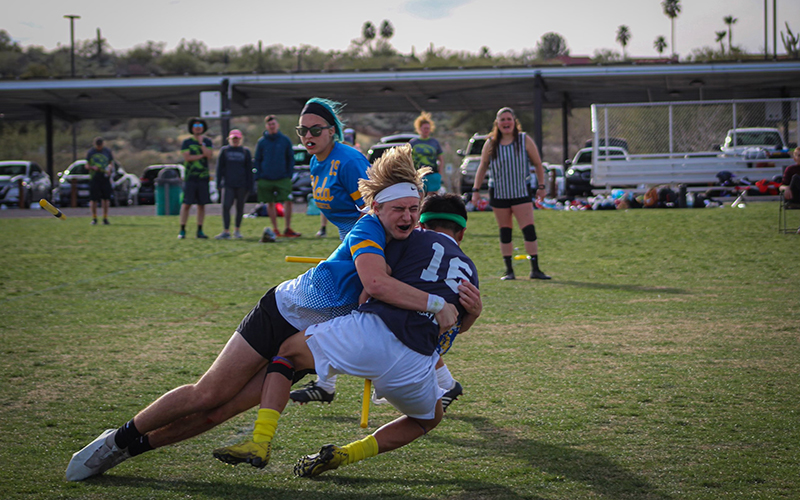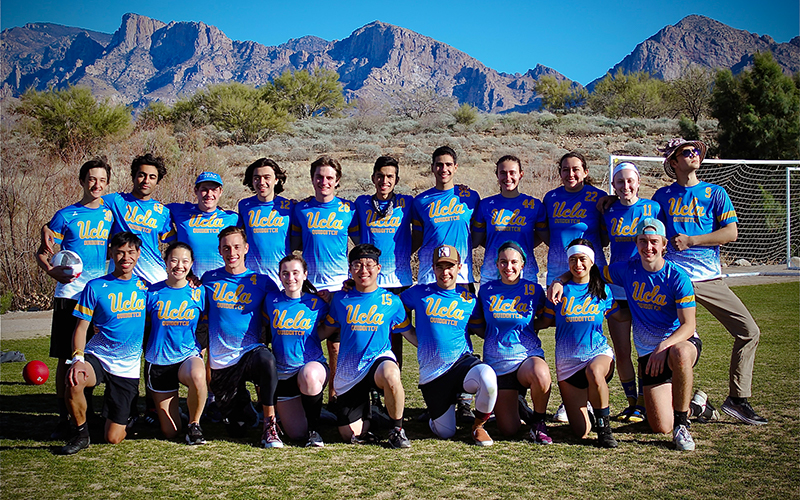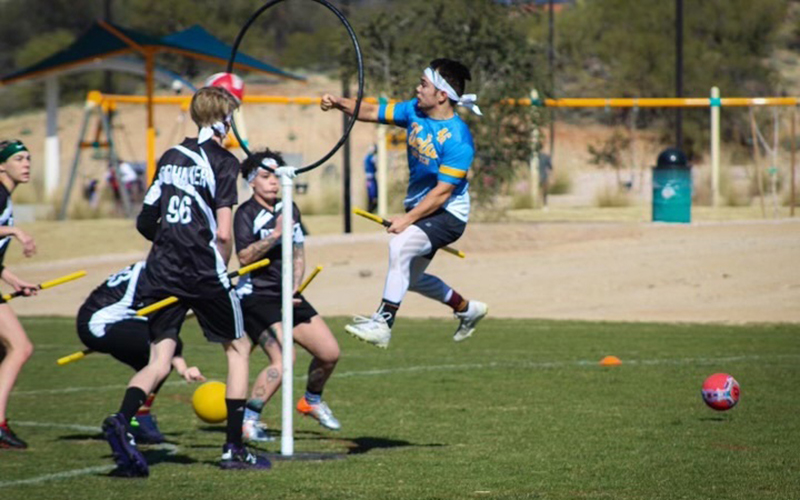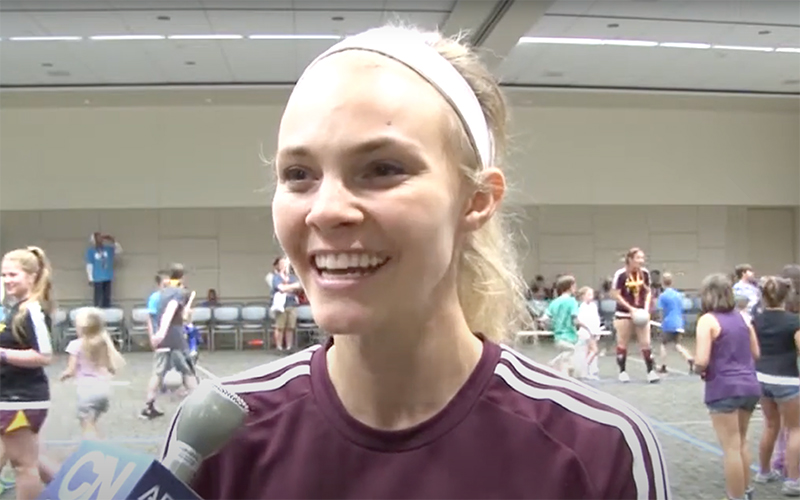
A UCLA player tackles an opponent during the West Regional Championship in Tucson on Feb. 26-27. (Photo courtesy of Nathaly Castejon/UCLA Quidditch Club)

UCLA quidditch players pose for a team picture after the West Regional Championship in Tucson on Feb. 26-27. (Photo courtesy of Nathaly Castejon/UCLA Quidditch Club)

A UCLA player skies high to score during the West Regional Championship in Tucson on Feb. 26-27. (Photo courtesy of Nathaly Castejon/UCLA Quidditch Club)
LOS ANGELES – It’s not unusual to see UCLA students mixing it up on the playing fields of their campus in Westwood, but on Friday and Sunday nights, players of a distinctly different sport roam the field at Drake Stadium – stradling sticks and hurling dodgeballs at each other.
Their game is quidditch, which was inspired by the popular Harry Potter book series – and some nights, everyone on the field is briefly a wizard.
Quidditch, which mixes elements of rugby, dodgeball and tag, has been around since 2005, and it has been played as a club sport at UCLA for the past 12 years. The club, considered among the premiere collegiate programs in the nation, has competed in almost every tournament there is, including four appearances in the Quidditch World Cup.
Most recently, the club competed in the West Regional Championship last month in Tucson. Facing teams from Arizona State University, University of California, Berkeley and the University of Utah, the Bruins and Cal managed to qualify for the USQ Cup 2022 in April. According to US Quidditch, the UCLA team has the eighth-best winning percentage in the country out of 86 qualifying teams.
With quidditch, “just playing a sport that is totally different from anything you’ve ever played before – was something that was really intriguing for me,” said Madi Johnson, UCLA quidditch club vice president.
Johnson began playing for the UCLA team three years ago in her freshman year. As a fan of J.K. Rowling’s seven books, she knew of quidditch only as a fictional game in the wizarding world of Harry Potter. Harry excels at the game, in which players riding magic broomsticks chase flying balls known as snitches.
“The books do a good job of describing how intense this game is and how fun it is and kind of like the teamwork and comradery behind it all,” Johnson said.
The big difference between Harry’s world and ours, of course, is we’re all muggles – the books’ term for nonmagical people – and can’t fly. Instead, quidditch players rely on the magic of make believe.
One curious aspect of the sport is how the golden snitch—the winged ball in the books—translates to muggle reality. At these non-Hogwarts events, the golden snitch is a sturdy person who’s not associated with either team and essentially they have a so-called tail tucked behind them. It’s actually a tennis ball in a sock. To get the snitch, a player known as a seeker must grab that tail by any means – even tackling and wrestling the snitch.
“You have to get used to looking silly – once you’re over that barrier getting used to running around with a stick in between your legs the entire time, it really becomes fun because you start tying in all the athletic aspects to it that you want in a competitive sport,” said Michael Navarro Jr., a senior at UCLA and president of the UCLA Quidditch Club.
Navarro, like Johnson, joined the club his freshman year, but he already had some exposure to quidditch while in high school in Kansas. The University of Kansas had a quidditch team, and he wanted to be part of something like that in college.
The appeal of quidditch continues after the practices and games are over.
“Since joining the quidditch team, I have found some of my best friends in this program,” Johnson said.
Navarro said one of the best pieces of advice he ever got was “Turn that big world you’re walking into smaller by finding those communities of people that you can surround yourself with, and quidditch did that for me.”
UCLA quidditch is a force to be reckoned with, but it also is a close-knit community that goes beyond the field of play. They welcome anyone who wants to be part of the team in the future.

